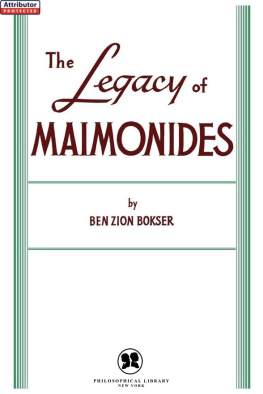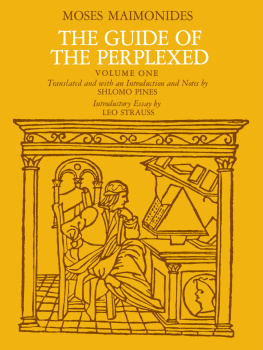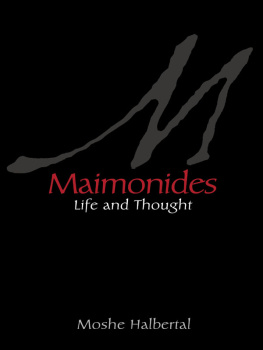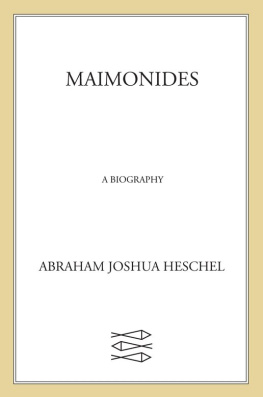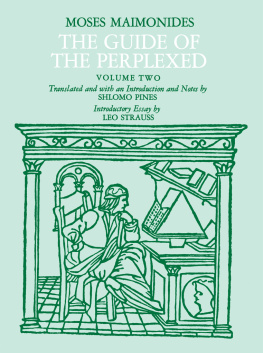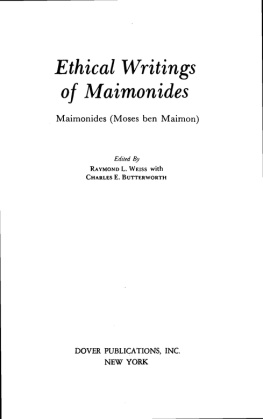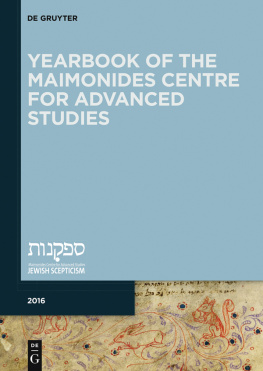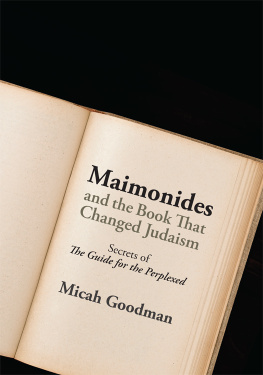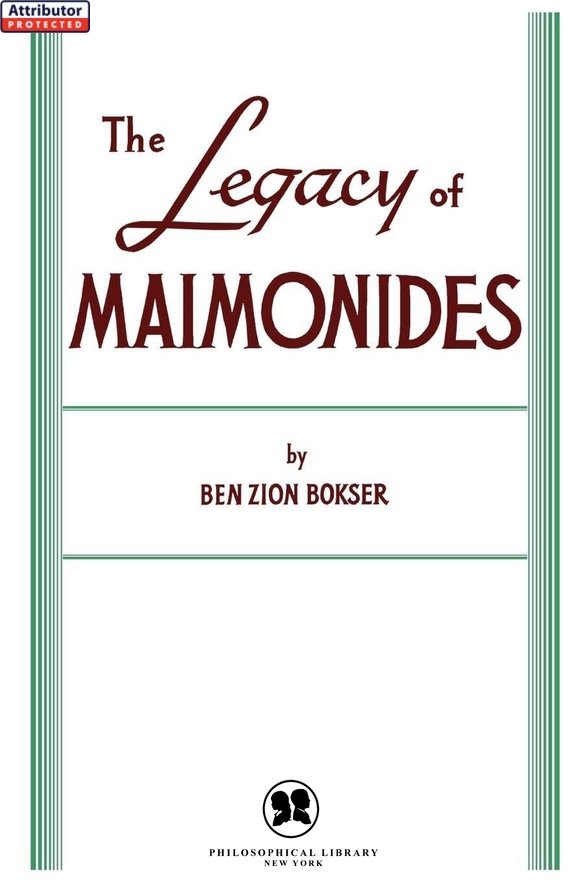Moreh I 5, 17, II 21, 23, 26, III 17, 21; Letter to the Jews of Marseilles (Hebrew), Kobetz Teshubot ha-Rambam ve-Igrotov, ed. Leipzig 1859, II p. 25b, and ibid , Letter to R. Hisdai ha-Levi, p. 23a, Letter to R. Judah ibn Tibbon, p. 28b, Essay on the Resurrection, p. 9a, Essay against Galen, pp. 20b, 21b. Maimonides frequently refers to his adversaries by the general name philosophers. By this he had in mind those who endeavor to interpret existence by means of reason alone, without reference to Scripture. The designation thus covered all the representatives of Greek thought, and their later disciples. In most cases, however, Maimonides deals specifically with the challenge of Aristotelian thought, because Aristotle was the most important figure among the philosophers. Maimonides was clearly aware of the writings of other Greek thinkers, apart from Aristotle. Thus he spoke of various schools of philosophy, including those who preceded Plato and he of course, regarded Plato as one of the very important philosophers (in letters to R. Judah ibn Tibbon and R. Hisdai ha-Levi). In the Essay on Resurrection he refuses to recognize the Mutakallemim as philosophers because they did not pursue rigorous analysis in their studies. In the Letter to the Jews of Yemen, ibid, p. 1b, he cites the writings of various pagan thinkers among them the Greeks, as adversaries of the Torah. Cf. Leo Strauss, The Literary Character of the Guide, in Essays on Maimonides, ed. by S. Baron, N. Y. 1941, pp. 41f.
Moreh, I 71.
Moreh, Introduction.
Moreh, I 1, 72, 73; III 8; Commentary on Mishnah, Introduction; Eight Chapters, ch. 1, 2; Millot ha-Higayon section 9, 10.
Commentary on Mishnah, Introduction; Moreh, I 34.
Moreh, III, 51, 54; Yad, Yesode ha-Torah 2: 1, 2, 4:12, Teshubah, 4:12, 10:3, 10:6; Sefer ha-Mitzvot, Positive commandment, 3, Kobetz, p. 28b. The awe felt before Gods greatness is here taken as a fulfillment of the duty to fear the Lord thy God (Deut. 10:20). However, in Sefer ha-Mitzvot, Positive Commandment 4, Maimonides applies this verse to the fear deriving from the prospect of Gods punishment. The divergence becomes clear when we consider the character of the Sefer ha-Mitzvot. As Maimonides makes clear in the introduction, this treatise was intended to defend his computation of the commandments as employed in the Yad, against the anticipated objections of the common people who had been habituated to follow the system of computations formulated by Rabbi Simon Kahira in his Halakot Gedolot. The common people, of course, were incapable of reaching the fear of God at its highest level. It was a common doctrine of Maimonides that the prescriptions of the Torah addressed themselves to the common people, at their level of understanding, while for the educated the same texts, in a more figurative rendition, conveyed a deeper meaning. The fact that the Sefer ha-Mitzvot was intended for the common people may explain certain other differences in the treatment of the same material between this work and other writings of Maimonides. Cf. B. Z. Bokser, Sefer ha-Mitzvot u-Mishneh Torah (Hebrew), in Bitzaron, Heshvan 5709, pp. 85-96. On the two levels of the fear of God cf. Albo, Ikkarim, III 33 and Rabenu Behay, Hobot ha-Lebabot III 3, where the distinction is explicitly made, with the lower level of fear corresponding to the capacities of the uneducated. The lower level of fear is of course seen as provisional, to be superseded by the higher fear, as intellectual development progresses. Maimonides denied that the Torah is eternal, as was taught for example in Philos doctrine of the logos. The Torah was for him a creation in time, like any part of nature. He often called attention to many striking parallels between the Torah and nature ( Moreh I 65, III 32, 34). It is thus understandable that the study of the commandments would serve even as the study of nature to reveal the greatness of God.
Moreh, I 31-36, 72; II 23; Letter to R. Hisdai ha-Levi, 23a. The distrust for the intellectual competence of youth appears in Plato, Republic VII where he objects to young men studying dialectics. The power of habit as a hindrance in the pursuits of reason is described by Maimonides as new, while the other difficulties were already recognized by Alexander of Aphrodisias. Leo Strauss, Philosophie und Gesetz, Berlin 1935, p. 46, has made the plausible suggestion that Maimonides is referring especially to the habituated interpretations of Scripture, which he indeed mentions to illustrate his general point. The Greeks did not have an authoritative Scripture, whose conventional interpretations could have impeded their speculations.
Moreh, III 17, II 13-29, Essay against Galen, pp. 22a, 22b, Essay on the Resurrection, pp. 10b, 11a, Letters to Marseilles Jewry and to R. Hisdai ha-Levi, pp. 23a, 23b, 24a, 25b, 26a.
Moreh I 2, II 40, III 27, 33, 35; Yad, Melakim 7:1, 9:1; Commentary on Mishnab, Eight Chapters, ch. 6; Millot ha-Higayon, section 8:14; Aristotle, Nichomachean Ethics, I 1, 7, II 2, VI 5, 7, VII 1. Cf. D. Rosin, Die Ethik des Maimonides, Breslau 1876, pp. 36f, 81f. Maimonides rejects explicitly the view, maintained by Saadia and others, that there is a category of rational laws which we could deduce by reason, even if they were not ordained in Scripture. There are laws on which there is a general consensus among men. Maimonides calls those laws Meforsumos, widely established laws. But they have no essential anchor in reason. This may be why Maimonides insists that adherents of the seven Noahite laws, to qualify as pious men among the gentiles must accept those laws as Scripturally ordained, rather than as universal rational imperatives. It is significant too that Maimonides lists the prohibitions of incest and unchastity, two Nohahic commandments, among the revealed rather than among the so-called rational laws. See Commentary on Mishnah, Eight Chapters, ch. 6; Yad, Melakim 8:11, 9:1. Maimonides did not consider the question of natural law in the field of morals. It is obvious, however, that he must have denied a natural law rooted in the dictates of reason, since the content of the natural law is the same as that of the rational laws. Aristotle speaks of natural law, but Maimonides seems to have regarded this law as natural only in a metaphorical sense, as did Averroes and Marsilius of Padua. See Leo Strauss The Law of Reason in the Kuzari, Proceedings of the American Academy for Jewish Research, XIII, 1943, pp. 47-50 and n. 5. Hugo Grotius ascribed a doctrine of natural law to Maimonides, on the basis of Moreh III 26. But Grotius misinterpreted Maimonides, as was shown by I. Husik, The Law of Nature, Hugo Grotius and the Bible, Hebrew Union College Annual II 1925, p. 399 n. 10. See also L. Strauss, ibid, p. 48 n. 4.

